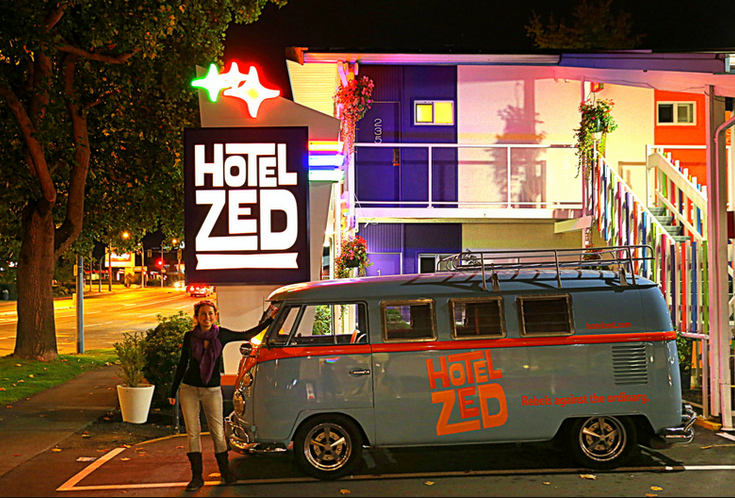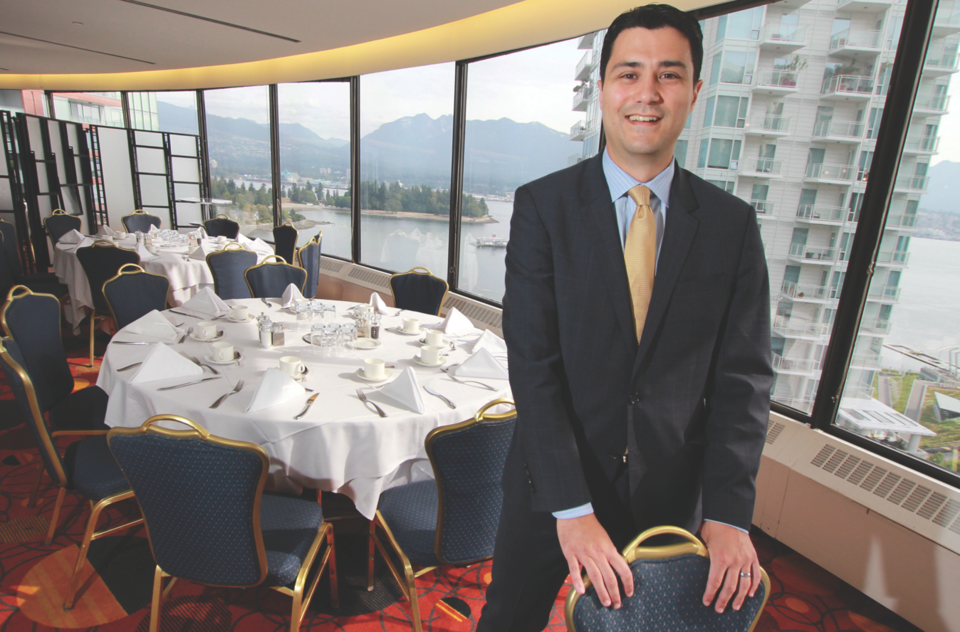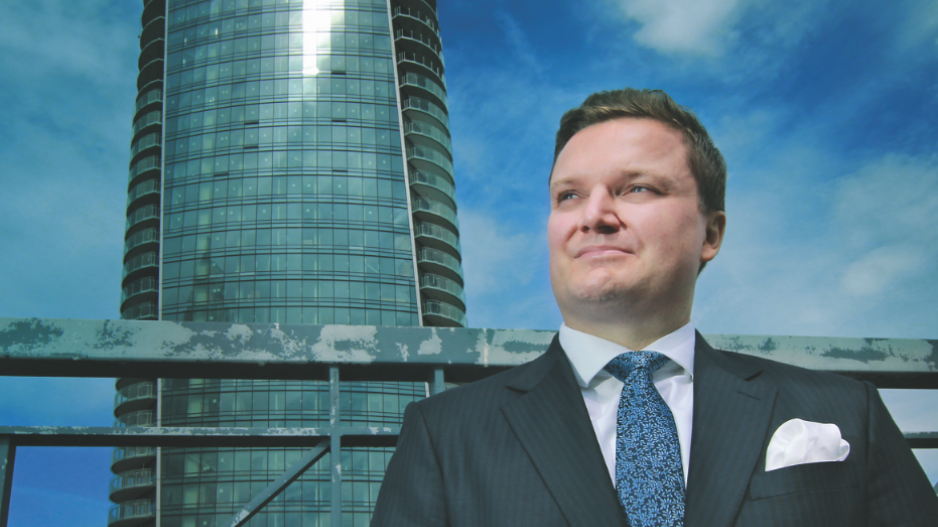The Trump brand is weak among luxury travellers, according to a new survey – a finding likely to fuel more controversy over whether Vancouver’s Holborn Group made a wise decision by contracting with Trump International to put the Trump brand on its under-construction hotel.
Trump ranked 40th out of 40 luxury hotel brands when wealthy travellers who were familiar with the brand were asked whether they would recommend the brand to family or friends, according to the 2016 Global Hotels Luxury Brand Status Index, which the Luxury Institute released December 17.
Strict privacy laws in Canada meant none of the survey respondents were Canadian, CEO Milton Pedraza told Business in Vancouver in an interview.
Instead, the New York-based Luxury Institute found its 3,900 respondents by buying lists from reputable companies that were able to determine income for those who live in the U.S., U.K., Japan, China, France, Germany and Italy.
Luxury brand Maybourne Hotels ranked No. 1 in each of four metrics, for which respondents were asked to grade hotels on a scale of 0 to 10:
•delivering consistent superior quality;
•being unique and exclusive;
•being visited by people who are admired and respected; and
•making guests feel special.
Trump ranked No. 34 for quality, No. 30 for exclusivity, No. 31 for having admired and respected guests, and No. 37 for making guests feel special.
“The survey was in the late summer,” Pedraza said. “This was before [company owner and Republican presidential candidate Donald Trump] started making all of the super-vile statements.”
In fairness, the sample size for those who graded Trump hotels was lower than those who graded much larger brands, such as Ritz-Carlton, Four Seasons and JW Marriott, because participants were only allowed to grade brands that they were familiar with or had experienced.
This was the first year that the Luxury Institute included the Trump brand because, in previous years, the nine-hotel brand was considered too small. Trump representatives then lobbied the Luxury Institute to be included, Pedraza said.
Trump is expected to open hotels in Baku, Azerbaijan in early 2016 and then one in Rio de Janeiro before Vancouver opens in July to make the chain a complete dozen.
Trump International Hotel & Tower Vancouver general manager Philipp Posch told BIV that he would not comment on the survey because he was not familiar with it.
Marketing for his hotel has not yet started.
“We’ll wait out the holidays and probably by January or so, we’ll reach out to clients and start the marketing process and machine,” Posch said December 17.
Click here to read a profile of Phillip Posch
How to do a rebranding properly
Branding experts say Holborn likely wishes that it never hitched its horse to the Trump cavalcade and that the situation underscores the need to have an escape clause in contracts.
“People who do these masthead deals for hotels might want to look at sports sponsorships,” said Brandever principal and branding expert Bernie Hadley Beauregard.
Those deals often end the day after a sponsored, star athlete does something objectionable.
A recent spate of hotel rebrandings in B.C. has experts pointing out both how to do a rebranding properly and what to avoid.

(Victoria's Hotel Zed has won awards for its rebranding of what was previously known as the Blueridge Inn | Crazyintherain.com)
Branding experts' biggest lessons are to keep the name short and catchy and to make sure that the brand is consistent across the chain so guests will know what to expect.
“The art form of branding is to bring the name down to be something that is usable and memorable to the consumer,” Hadley Beauregard said.
He pointed to Portland, Oregon-based Ace Hotels, which has seven hotels around the world in cities as varied as London, Panama City and Seattle.
“Always artistic, eclectic and hip, Ace Hotels often redefine their host city’s magnetic centre,” he said. “Their brand aura is such that you want to make a pilgrimage to see their properties, even if you aren't staying there.”
Victoria-based Accent Inns’ rebranding of its secondary, economy hotel to Hotel Zed from Blueridge Inn, in 2014, similarly aimed for a hipper image and a short succinct name.
Rooms at Hotel Zed in Victoria have modern elements such as flat-screen TVs, which have media hubs to project iPhone screens onto the TV monitor.
Basically, however, the hotel’s shtick is that it is made to look retro – complete with rotary-dial telephones and furniture and lamps that appear to be out of the 1970s. A multicoloured 1967 Volkswagen van is parked outside and typewriters in the lobby are for guests to use.
“Because Accent Inns starts with an ‘A,’ we can also say that we’ve got brands that go from A to Zed,” Accent Inns marketing director John Espley told BIV.
The rebranding was such a success that Accent Inns plans to open a second Hotel Zed, in Kelowna, next summer. Accent Inns won recognition for the rebranding at the Victoria Real Estate Board Commercial Building Awards in the hotel category. Destination British Columbia then highlighted the hotel when it unveiled its new $2.6M marketing strategy late last year.
"Too many words. My head hurts"
Beauregard, however, is less enthusiastic about Vancouver-based Pinnacle International’s rebranding of its longtime Renaissance Vancouver Harbourside Hotel as the Pinnacle Hotel Vancouver Harbourfront.
“Too many words,” Hadley Beauregard said. “My head hurts.”
Making the rebranding more puzzling, he said, is that the new Pinnacle Hotel Vancouver Harbourfront is virtually across the street from a second hotel that also has “Pinnacle” in an even wordier name: the Vancouver Mariott Pinnacle Downtown Hotel.

(Kyle Matheson is director of hospitality marketing at Pinnacle Hotel Vancouver Harbourfront | Rob Kruyt)
What’s worse than simply having two hotels extremely close together, with both carrying the distinctive word “Pinnacle” somewhere in the brand, is the fact that the two hotels are managed by two different companies – Marriott International and Pinnacle International – even though they are both owned by Pinnacle International.
The two hotels therefore have different offerings for guests.
The Marriott Pinnacle, for example, requires guests to join a loyalty program to get free Wi-Fi whereas the Pinnacle Harbourfront provides guests free Wi-Fi with no need to join any program.
“This creates confusion in consumers’ minds,” Hadley Beauregard said.
“Brand consistency is key.”
Pinnacle International has contracted Marriott to manage the Marriott Pinnacle for the past decade.
Paying a management company a fee up to about 5% of revenue to be able to use a global brand such as Marriott is called “flagging” a property.
The common practice is exactly what happened when Holborn Group agreed to pay Trump International to be able to use the Trump brand on Holborn’s hotel.
The point of this strategy is to coast on the brand recognition of a well-known manager such as Marriott or Trump.
Pinnacle International, which is best known as a real estate developer, ended its management contract with Marriott’s Renaissance Hotels brand earlier this year. That meant that it had to come up with a new name for what was known as the Renaissance Vancouver Harbourside Hotel.
Its director of hospitality marketing, Kyle Matheson, told BIV that the new Pinnacle Harbourfront name makes it clear that the hotel is near Vancouver’s harbour.
Using Pinnacle in the name was done because Pinnacle International both owns and manages two other B.C. hotels: Pinnacle at the Pier in North Vancouver and Pinnacle Hotel Whistler.
“The goal with rebranding the [former Renaissance] property as Pinnacle Harbourfront was to broaden our hospitality and hotels and restaurants portfolio under our own Pinnacle name,” he said.




